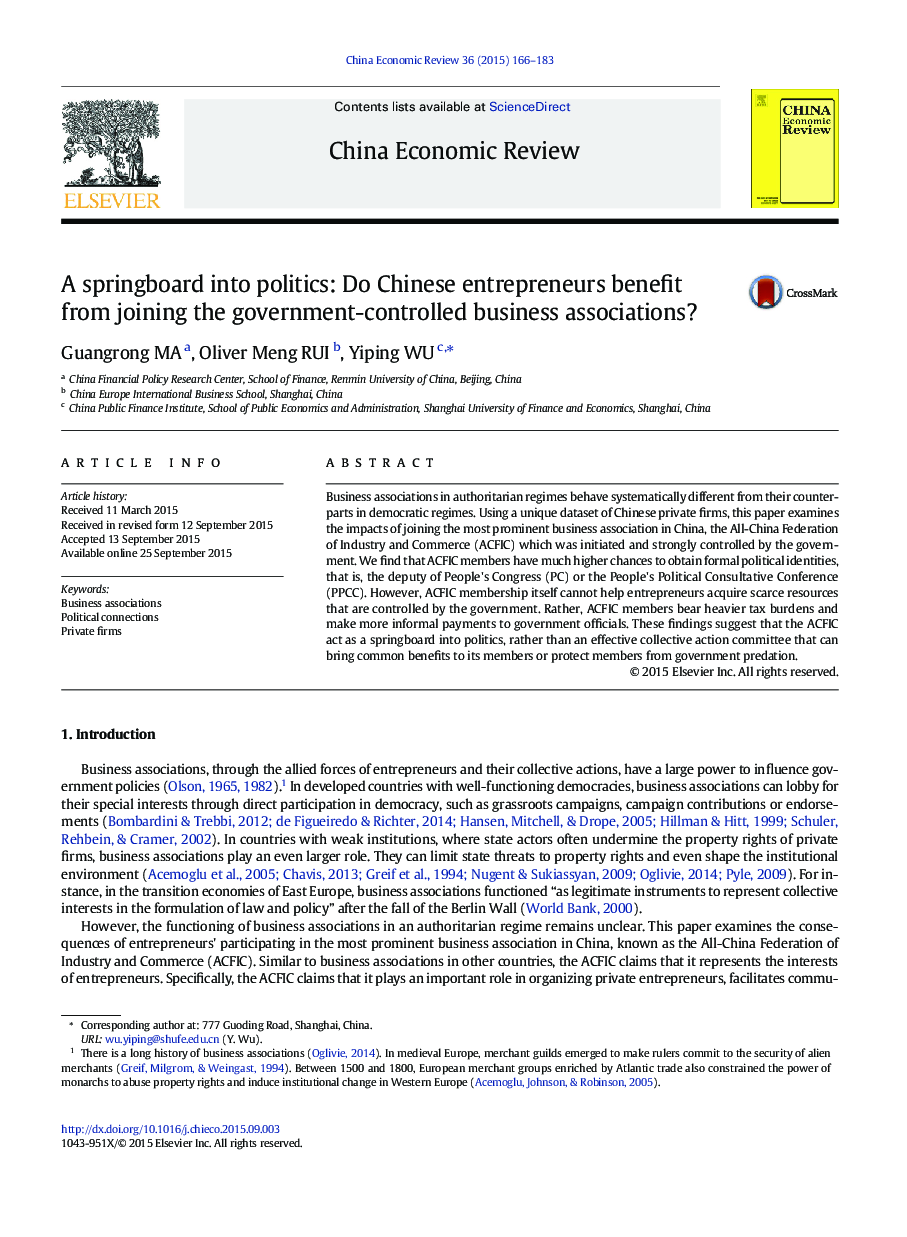| کد مقاله | کد نشریه | سال انتشار | مقاله انگلیسی | نسخه تمام متن |
|---|---|---|---|---|
| 5047427 | 1476265 | 2015 | 18 صفحه PDF | دانلود رایگان |
- We study the effect of ACFIC in China with firm-level survey data.
- ACFIC helps private entrepreneurs obtain formal political identity.
- ACFIC membership cannot help entrepreneurs to have better access to bank credit or land or earn higher profit.
- ACFIC members bear heavier tax burden and make more informal payments to government officials.
- Chinese business associations like ACFIC act as a springboard into politics.
Business associations in authoritarian regimes behave systematically different from their counterparts in democratic regimes. Using a unique dataset of Chinese private firms, this paper examines the impacts of joining the most prominent business association in China, the All-China Federation of Industry and Commerce (ACFIC) which was initiated and strongly controlled by the government. We find that ACFIC members have much higher chances to obtain formal political identities, that is, the deputy of People's Congress (PC) or the People's Political Consultative Conference (PPCC). However, ACFIC membership itself cannot help entrepreneurs acquire scarce resources that are controlled by the government. Rather, ACFIC members bear heavier tax burdens and make more informal payments to government officials. These findings suggest that the ACFIC act as a springboard into politics, rather than an effective collective action committee that can bring common benefits to its members or protect members from government predation.
Journal: China Economic Review - Volume 36, December 2015, Pages 166-183
